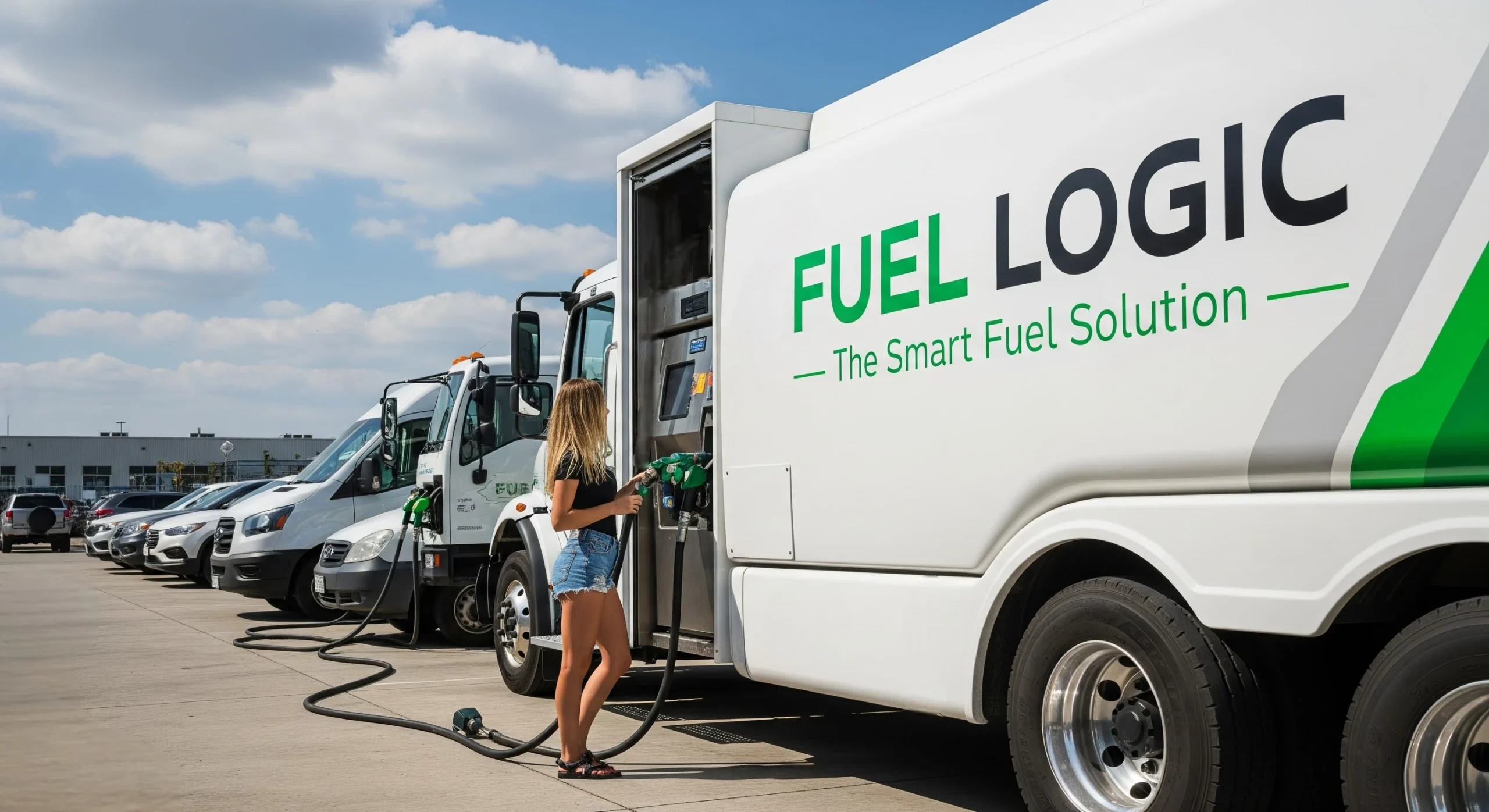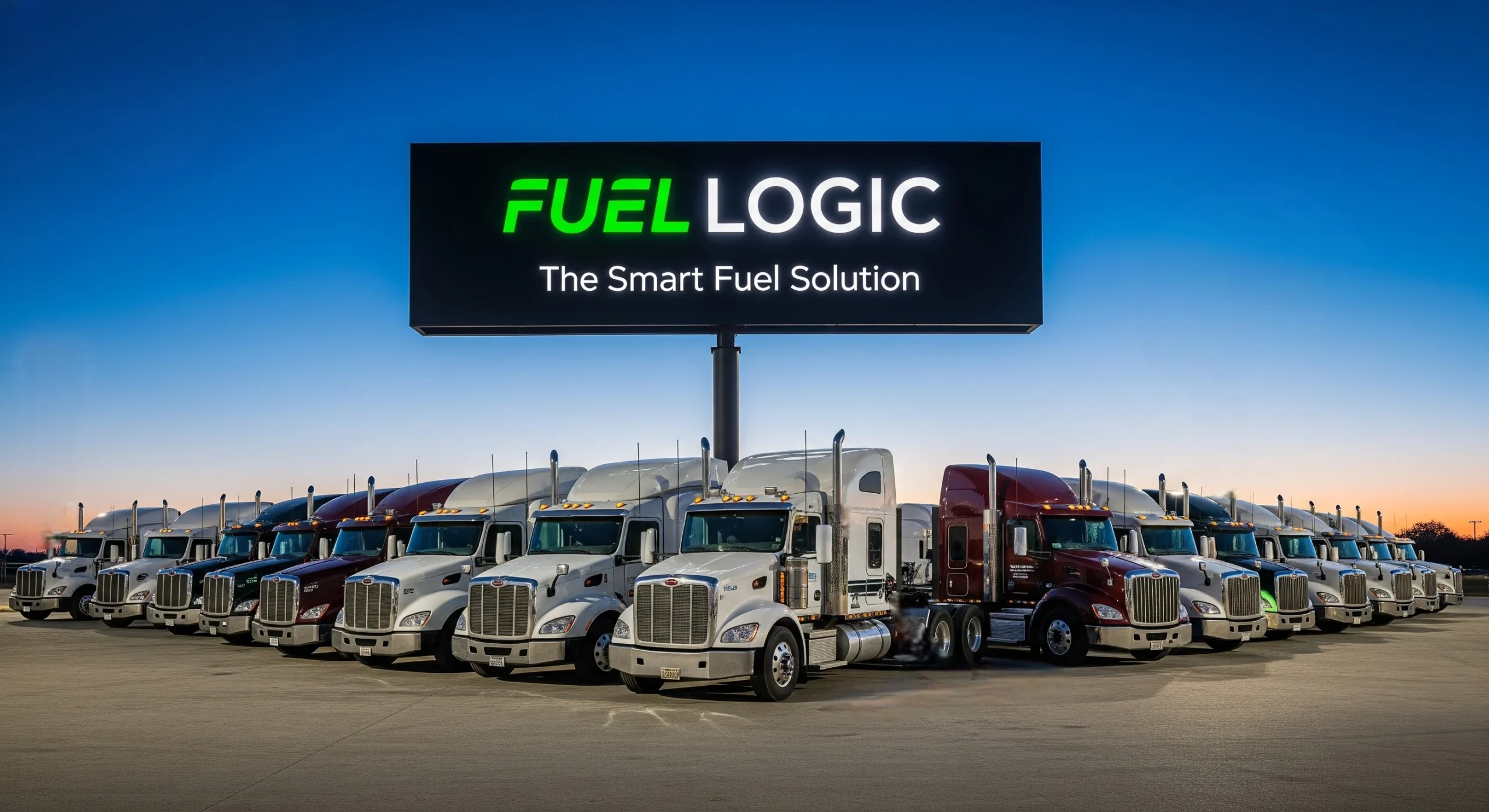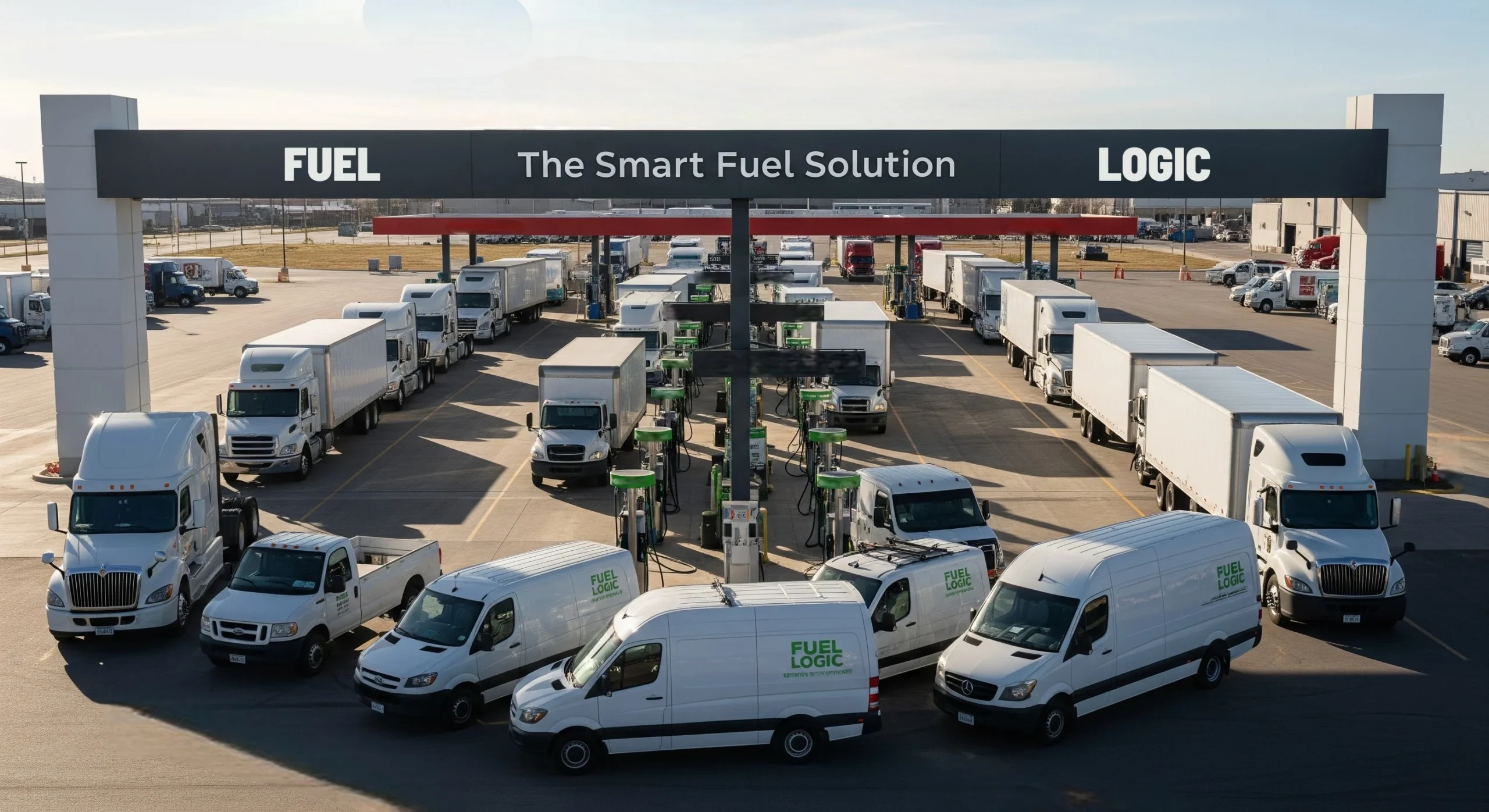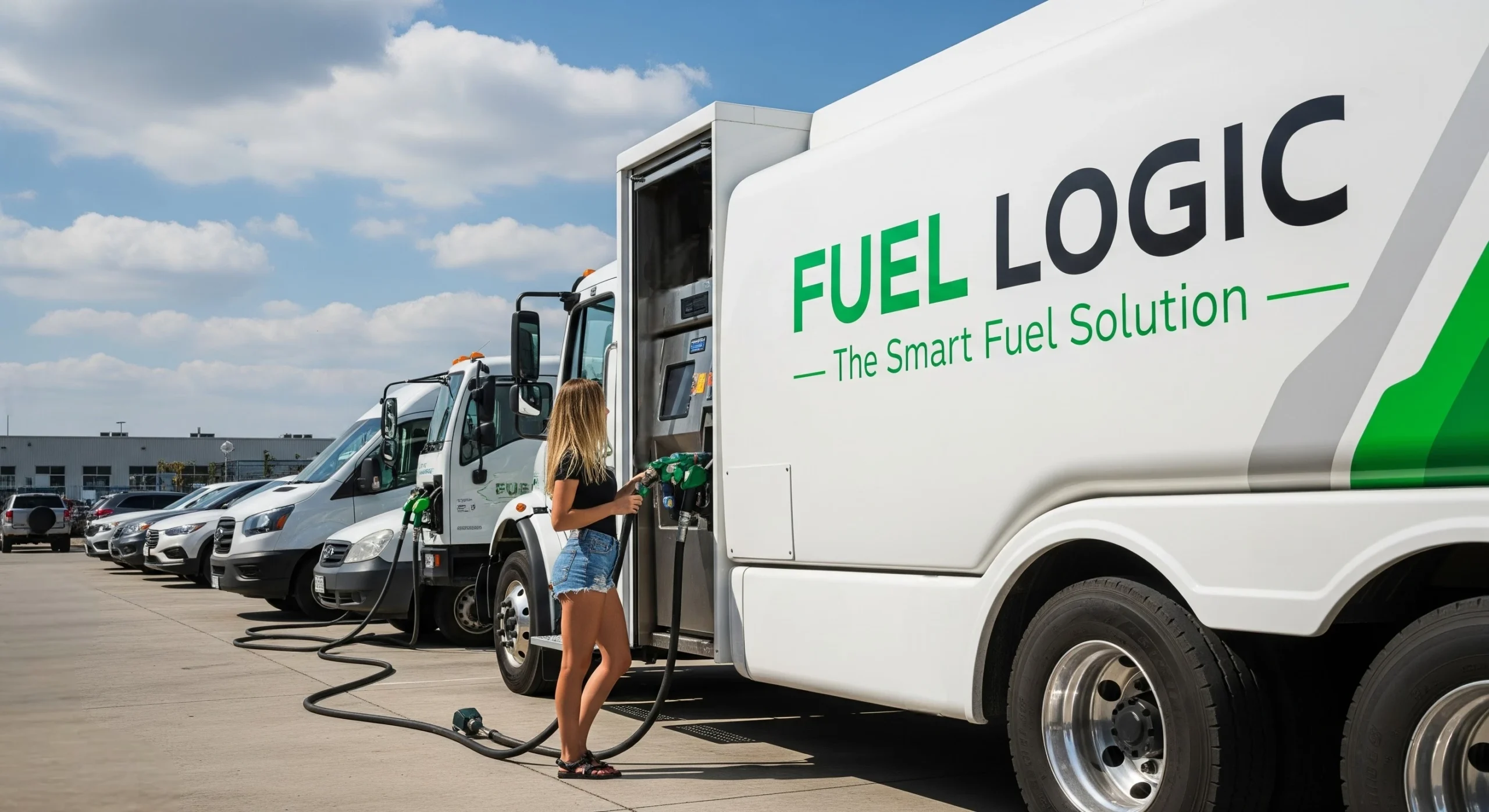Quick pit stops? They look harmless on paper. But in practice, they’re a slow bleed on your schedule.
Detours, pumps, lines, cards, receipts—it all adds up. Multiply that across your fleet, and suddenly your week’s leaking hours. Fuel Logic’s mobile fuel delivery stops that leak cold.

What exactly is mobile fuel delivery?
A certified fuel truck rolls right into your yard or job site, topping off every vehicle where it sits. Industry folks call it “wet hose” fueling. You can have it done during shift changes or overnight. Next morning, drivers walk in, turn keys, and hit the road. No pump detour in sight.
Why fuel stops quietly sabotage productivity
- That “fast” fuel stop? More like 15-25 minutes gone.
- Leaving the route racks up miles and idle time.
- Paperwork piles, receipts, card glitches, reconciliations.
- And yes, there’s a safety risk: crowded lots and late-night stations aren’t ideal.
How on-site fueling fixes the problem

- Trucks stay put, no wasted trips to a station.
- Shift changes happen with tanks already full.
- No lines, no pump errors, no outages to slow you down.
- Every fill logged digitally by vehicle, driver, date, gallons.
Let’s talk numbers for a second
Here’s a quick calculation:
- 20 vehicles × 20 minutes × 5 days = 2,000 minutes lost.
- That’s 33 driver hours a week. At $28/hour loaded? $924 weekly.
- Toss in 5 extra miles per fuel stop at $0.70/mile, another $350/week.
- Over the course of a year, soft costs can total approximately $66,000.
And that’s before we even touch fuel card fees or shrinkage. Even if per-gallon costs run higher with mobile fueling, the savings in time and distance can tip the scale in your favor.
Bonus: useful data at your fingertips
Good providers don’t just pump gas and go. They log:
- Odometer or engine hours at each fill.
- Gallons by unit.
- Time, date, and GPS location.
- Exceptions for unusual usage or missed fills.
That’s your early warning system for fuel theft, MPG drops, or maintenance issues.
Safety and compliance matter
If you’re hiring a provider, check:
- Hazmat training for drivers
- Certified meters and spill kits on board
- EPA, DOT, and fire code compliance (think NFPA 30/30A)
- Insurance coverage and documented SOPs
- Secure fueling systems to prevent spills or vapors
A 30-Day Rollout Plan
- Week 1: Map it out—fleet size, parking spots, shift windows, fuel types, oddball gear.
- Week 2: Pilot with 10–20% of vehicles on a stable route or yard. Pick a fueling window; overnight’s perfect.
- Week 3: Measure. First-start times, MPG, missed deliveries. Compare cost vs. station fueling (labor + miles).
- Week 4: Expand. Standardize fueling order, add driver reminders, integrate fueling data into fleet software.
Tips from folks who’ve done it

- Set up a serpentine parking pattern to minimize fuel truck repositioning.
- Paint or cone spots by unit number.
- Prioritize tanks under 50%.
- Pair with light PM checks—tires, lights, fluids.
- Choose the right fuel now to prevent costly engine repairs later.
FAQs
Q: Will the truck block our lot?
A: A good provider plans around that. Hoses are long; lanes stay clear.
Q: What if a vehicle’s missing?
A: Expect a miss report. Many will swing back next shift.
Q: What about cards and receipts?
A: You’ll probably go digital. Some fleets disable cards for pilot units.
Q: Safe at night?
A: Yes, if they’ve got trained drivers, lighting, and clear SOPs. Ask for their night fueling checklist.
Who benefits most?
- Service and delivery fleets with tight morning stops
- Construction crews parked on-site
- Reefers that need after-hours fills
- Municipal fleets with fixed yards.
Watch these pitfalls
- Surprise charges, after-hours rates, minimums, and access fees.
- Inconsistent parking patterns slow the process.
- Missing or messy fuel data. Ask for exportable, line-item logs.
The takeaway
Fuel stops might feel minor, but they’re time thieves.
Bring the pump to your lot and you’ll cut detours, shrink admin time, and get trucks rolling faster.
Start small, keep it simple, track results.
The payoff shows up in steadier routes, less idle, and zero “we’re late because we had to fuel” excuses.
